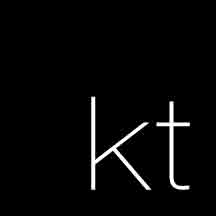Owning a rental property is a great way to accumulate generational wealth and with time, passive income. However, tales of terrible tenants are enough to make some people think twice about becoming a landlord. Renting a property and finding the right tenant may seem like a daunting task, but following these three tips will put you well on your way to finding a great tenant.
1. Pull Credit Reports –Don’t rely on the provided one.
A credit report is one of the most important documents you can ask for from a prospective tenant. It provides insight into spending habits, reliability, and whether somebody is over-extended or a modest spender, and it acts as a source to corroborate employment among other things.
How to read a credit report
Understanding how to read a credit report is important, but not only the various codes and industry jargon used to convey information about various trades and payment history, but something as simple as searching for inconsistent formatting and spelling errors may indicate that you’re looking at a fraudulent document.
Credit ratings range from 300 to 900. Typically, anything at or above 650 ranges from good to excellent. Anything below 579 is considered a poor credit rating and may indicate the person has a high risk of not paying their debts. However, we’ve encountered great tenants who’ve experienced unfortunate and unavoidable circumstances which put their credit at risk. Keep an open mind and find out the whole story.
And, always pull your own credit report on their behalf as a last resort in confirming the accuracy of the one provided.
2. Find Out About Their Employment History
Looking into a prospective tenant’s employment history may provide insight into the stability of their income. Do they hop around from job to job regularly? Are the various jobs within the same industry? How long have they been at their place of employment?
Getting a copy of their most recent pay stub is essential. Ensure it’s current, and ideally, get the one prior to compare the numbers; you’d be surprised at how often people make fake paystubs, which we catch from incorrect math. It’s also not unusual that the income stated on a rental application will vary from the numbers shown on a pay stub.
3. Look at Their Residence History
As with employment background, you also want to learn about their rental history. Where were they living previously? Did they rent or own? Were they there for an extended period, or have they been moving from house to house? Find out their story and why they want to rent your property. While you can’t control how long a tenant stays, this may provide insight into what to expect from a length of tenancy perspective, in case you have a preference.
Are references reliable sources?
References from previous landlords are seldom going to provide bad feedback. Any reference is listed as a reference because the tenant assumes positive feedback. However, some references are fake; you can find them by asking questions they should know but may not. Here are a couple of examples:
- “Hey, this is Adrian; I’m considering a new tenant who has listed you as a past landlord at 123 Anywhere Street. Was that a one-bedroom or two-bedroom condo?”
- “Hey, this is Adrian; I’m considering a new tenant who has listed you as a past landlord at 123 Anywhere Street, Unit 133. Can you confirm how much their rent was?”
From our experience, these are the types of questions that a hired “reference” will stumble on.
4. Interview the Tenant
Last but not least, complete an in-person interview. It’s easy to lie on paper, but not so much in person.
Doing these things will set you up to find the right tenant who will treat your home as if it were their own.
For help buying real estate, selling real estate, investing or renting, Contact us for a complimentary chat





